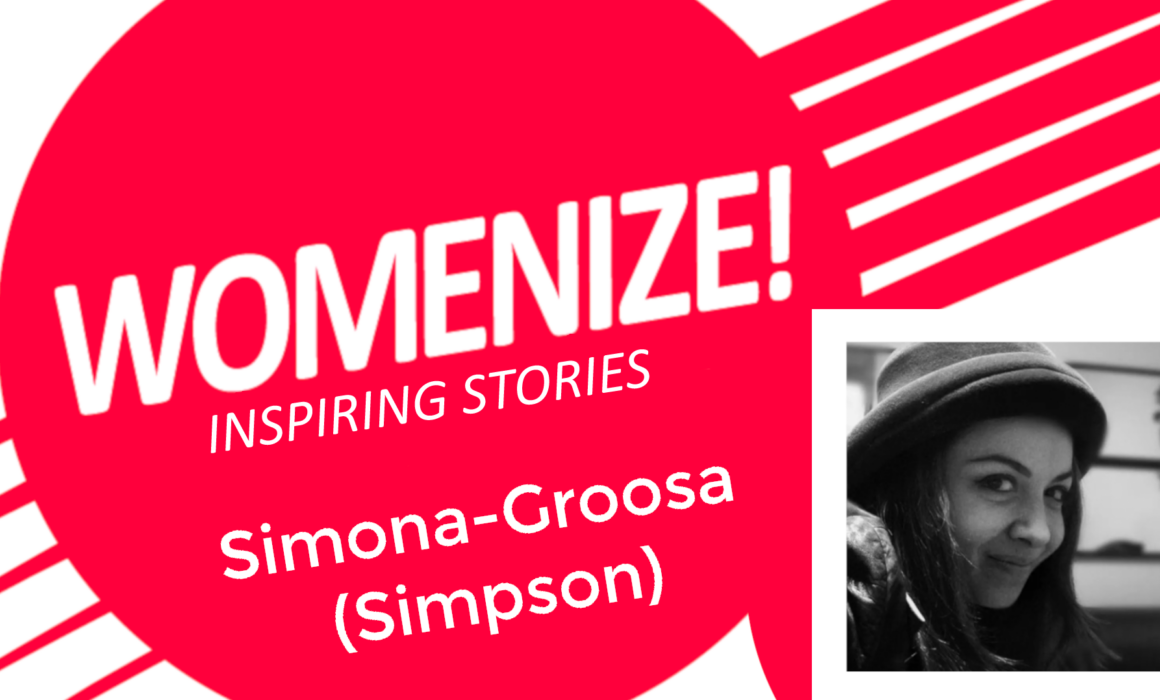Simona-Groosa (Simpson) – Womenize! – Inspiring Stories
Womenize! – Inspiring Stories is our weekly series featuring inspirational individuals from games and tech. For this edition we talked to Simona-Groosa (Simpson), Creative Director at KING CLOUD. She talks about balancing creative integrity and adaptability in digital art, highlighting ethical concerns and the importance of fostering respectful environments in the gaming industry. Read more about Simona in this interview:
Hi Simona! With your diverse experience in character design, concept art, and illustration across different projects, how do you approach maintaining creative versatility while staying true to your unique artistic style?
Ha, that’s a good question! Here, we’re discussing compromise, a delicate topic. Looking back at the history of art, we can recall “The Night Watch,” a painting that is now universally regarded as a masterpiece. In its time, it was rejected by the authorities; the baroque artist refused to compromise. Rembrandt’s rendering of scenes in vivid detail, rather than conforming to the traditional style, ultimately led to his decline as an artist.
Yet, we can also look to Warhol’s posters and his notable career in the 1950s as an advertising artist. What did Warhol do to avoid compromising? He tailored his work to meet public demand while maintaining his artistic integrity, resulting in the creation of value.
As digital artists, our aim is to create value regardless of the subject, while staying true to our artistic principles. I aim for creative adaptability by embracing new media and technologies. I often embark on new journeys, such as exploring Extended Reality (AR/VR/MR), expanding artistic boundaries beyond convention. I stay open-minded.
Could you elaborate on whether there was a pivotal moment or specific experience that made you reconsider the gaming industry? What words of wisdom would you share with fellow industry artists?
My word of wisdom is one only: Confidence. Confidence in accessing digital worlds, confidence in AI’s significant role in the tech sector, but mostly, we need to regain confidence in human values.
There are Web3 startups that have received funding and treat their employees in direct proportion to the funds raised, participating in the metaverse economy, either ethically or less ethically. But there are also artists who work out of passion. For them, the vision of the project is everything. My last story with a startup is here. It’s not a happy one. I’d also like to highlight the hierarchy aspect – still in power in the gaming world, and that is so harmful. Titles such as Art Director/Lead are frequently misunderstood as administrative roles, focused on with tasks and meeting coordination, rather than emphasizing creative output. What is the name of the studio behind the renowned platform for video game distribution? We won’t give names, it’s obvious who they are. They’re doing great now, and they’ve operated without bosses since 1996, cultivating a culture where everyone contributes creatively, free from formal titles.
In light of the challenges highlighted in an article you published, particularly regarding inappropriate behavior in the workplace, how do you envision your experience shaping discussions and actions toward fostering safer and more respectful environments within the gaming industry?
After publishing the article, I sadly noticed my colleagues hesitating to leave me a LinkedIn review, fearing job loss. Overall, there’s a widespread sense of insecurity. It feels akin to the suppression of free speech, similar to what my parents faced living in a dictatorship country —but now, ironically, I find myself facing it in the gaming industry.
How to create a respectful game environment? Never compromise, that’s our initial topic. Fostering collaboration and open discussions about issues are crucial. Don’t hesitate to speak up. Sharing our experiences can help enhance the gaming sector and make it more welcoming to all, regardless of gender, culture, ethnicity, or background. Cultivate relationships within the community, seek legal advice when necessary, and maintain a positive outlook. Despite challenges, prioritize creating good work—aim to make a good game!
And don’t forget to smile. Some of the most challenged artists have produced the most memorable works. So keep on smiling.
Thanks for this interview, Simona!
Simona’s links: LinkedIn
Womenize! – Inspiring Stories Feature by Madeleine Egger

